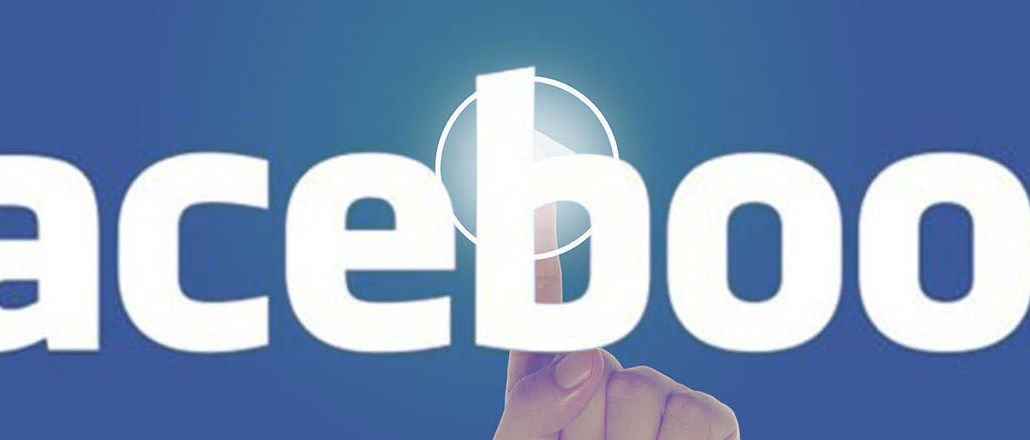Secure your place at the Digiday Media Buying Summit in Nashville, March 2-4

For months, Facebook has been pitching publishers on the wonders of posting their media — especially their videos — directly to Facebook in exchange for a split on ad revenue. How Facebook planned to advertise against those videos has remained mostly a mystery, however.
But Facebook recently expanded its publisher video initiative and, in doing so, revealed one of the ways it is planning to help publishers earn revenue from videos posted directly to the platform.
Fox Sports recently joined the NFL as the only media companies testing an ad that runs against videos uploaded to Facebook’s “native” video player, as first reported by TheVideoInk. The ad includes a static banner across the bottom of the video and a “post-roll” ad that runs at the end of the segment. It directs users back to the brand’s webpage, with Facebook and the publishers splitting ad revenue.
Fox Sports’ foray into Facebook video advertising comes by way of “@TheBuzzer,” a millennial-focused sports show that publishes directly to social platforms Facebook, Twitter and YouTube. Its launch partner is Nationwide.
Nationwide’s director of strategic partnerships Jim McCoy said the sponsorship was part of a larger deal between the brand and Fox Sports.
“We did a significant TV buy with Fox in a variety of areas, and [Facebook video] was one of the elements they were testing and learning around,” he told Digiday.
The focal point of that deal was Nationwide sponsoring Fox Sport’s coverage of the Daytona 500 which took place Feb. 22, and accordingly, Nationwide ran ads against two videos “@TheBuzzer” posted that day.
But Nationwide has not run ads against all of Facebook videos posted by “@TheBuzzer,” though. At times, it has eschewed the bottom banner and post-roll ad in favor of just placing its logo in the lower right-hand corner of the video. Other times, “@TheBuzzer” has posted videos with no ads at all.
Facebook spokeswoman Carolyn Thomas said the Fox Sports-Nationwide partnership is part of a limited test, and that Fox Sports and the NFL were the only two media companies currently using it.
NFL spokesman Alex Riethmiller said the league’s deal with Facebook and its Facebook video sponsor Verizon is not a test, but he declined to comment on how long the partnership would go for. Both declined to comment on how Facebook was splitting ad revenue derived from publisher video.
The NFL began using the same ad unit in December. It was unclear why Facebook chose another sports network for its second partner. But a possible explanation is that both ESPN and Fox Sports already have professional-grade video production crews, and that sports fans have proven themselves insatiable media consumers.
“When you look at creating timely videos, sports content can do really well,” Noah Mallin, head of social at media agency MEC, told Digiday.
“You can also look at it as a shot over Twitter’s bow,” Mallin added, referring to the Twitter feature that allows brands to sponsor a video clip and promote it in people’s feeds. The NFL was one of the first media companies to embrace amplify when it did so in September 2013, and many amplify clips are of sports highlights, Mallin said.
Facebook’s courting of publishers is also a way for it to continue challenging YouTube as the premier digital video platform on the Web. In November, Facebook CEO Mark Zuckerberg said the platform would consist “mostly” of video in five years.
“Video is a huge, huge focus for Facebook in 2015,” Mallin said. “If Facebook is looking at chipping away at YouTube, that’s the way to do it because publisher videos are more welcomed when it comes to what people want in news feed.”
Additional reporting from Eric Blattberg
More in Media

From feeds to streets: How mega influencer Haley Baylee is diversifying beyond platform algorithms
Kalil is partnering with LinkNYC to take her social media content into the real world and the streets of NYC.

‘A brand trip’: How the creator economy showed up at this year’s Super Bowl
Super Bowl 2026 had more on-the-ground brand activations and creator participation than ever, showcasing how it’s become a massive IRL moment for the creator economy.

Media Briefing: Turning scraped content into paid assets — Amazon and Microsoft build AI marketplaces
Amazon plans an AI content marketplace to join Microsoft’s efforts and pay publishers — but it relies on AI com stop scraping for free.





